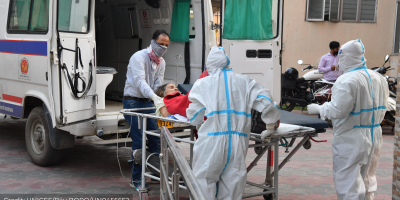On 14 August 2021, Côte d’Ivoire reported a suspected case of Ebola in a patient who travelled to Abidjan by road from Guinea.
This is the first case of Ebola in Côte d’Ivoire since 1994, but with regional and international support, the country has improved diagnostics and treatment capacity and has set up rapid response teams in the wake of the 2014-16 West Africa Ebola epidemic. On 16 August, the country swiftly began vaccination of high-risk populations, including health workers and first responders with the rVSV-ZEBOV Ebola vaccine. Disease surveillance has been strengthened including screening at border crossing points and in high-risk communities, infection prevention and control measures are being scaled, and community mobilisation and outreach reinforced.
This technical brief was prepared by IDS in July 2021 to support the embedding of social science and anthropological perspectives in UK AID-supported Tackling Deadly Diseases in Africa (TDDA) technical assistance and its Early Response Mechanism.
It draws on a review of both academic and grey literature, as well as inputs from social scientists and other public health experts in Côte d’Ivoire. It presents key considerations regarding:
- the background and overview of the country’s health system;
- issues related to infectious disease outbreaks, response, and preparedness;
- health governance and key actors;
- community experiences and responses;
- implications for outbreak preparedness and response.
Download the technical brief in English and French.
SSHAP is preparing an accompanying document in response to the Ebola outbreak in Côte d’Ivoire that summarises the material presented in this technical brief.



